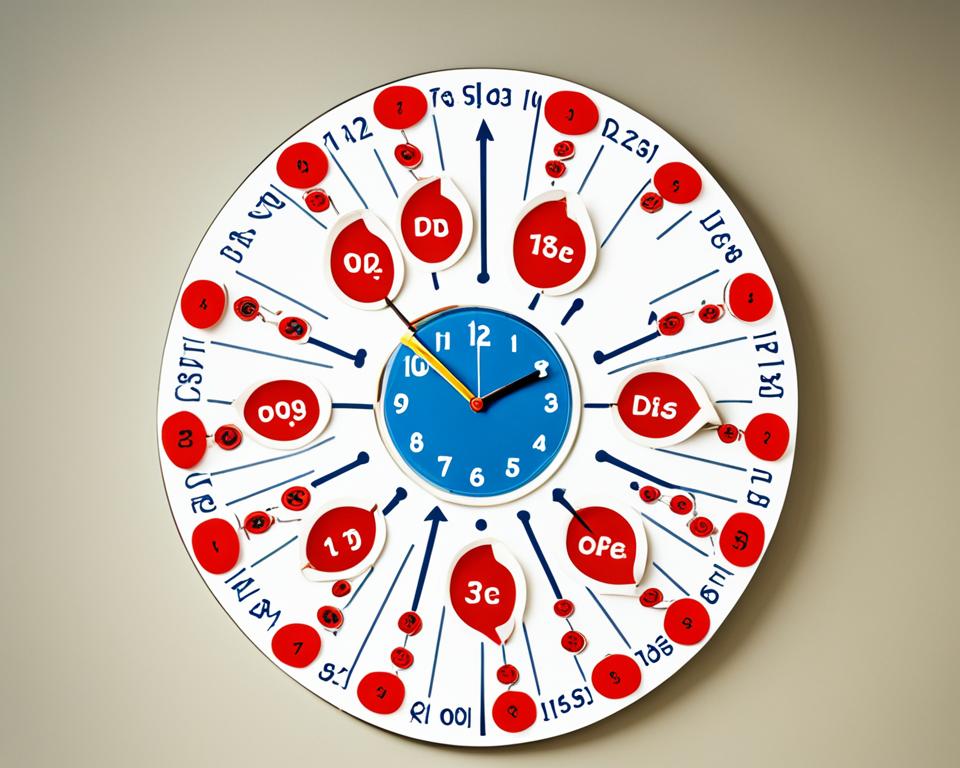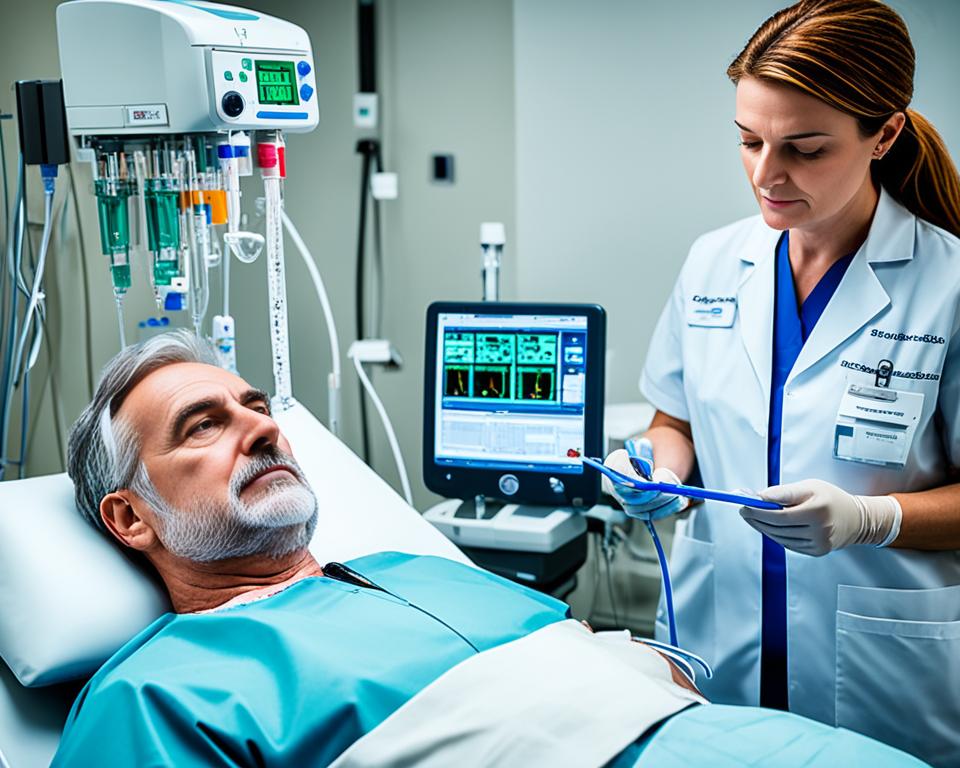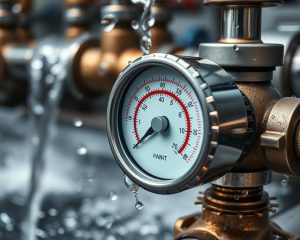
Chronic kidney disease affects many people around the world. Stage 3 kidney disease is a key point in this health issue. Here, the kidneys’ function drops moderately. It’s important to know about the life expectancy and how to manage this stage. This knowledge helps patients and doctors make good treatment plans. It can also help slow down how fast the disease gets worse.
Read interesting things at : luoghievisioni
Key Takeaways
- Stage 3 kidney disease is marked by a 30-59% reduction in the kidney’s glomerular filtration rate (GFR), indicating moderate kidney function impairment.
- Life expectancy for individuals with stage 3 kidney disease can vary widely, depending on factors such as age, overall health, and the underlying cause of the kidney dysfunction.
- Effective management of stage 3 kidney disease focuses on controlling underlying conditions, adopting a kidney-friendly diet, and making lifestyle changes to preserve remaining kidney function.
- Regular monitoring of kidney function through blood tests, such as creatinine levels and estimated GFR (eGFR), is crucial for tracking disease progression and guiding treatment decisions.
- Timely intervention and a multidisciplinary approach, including collaboration between nephrologists, primary care providers, and other healthcare professionals, can help improve outcomes for individuals with stage 3 kidney disease.
Understanding Stage 3 Kidney Disease
Kidney disease slowly decreases kidney function. Stage 3 kidney disease is especially important to know about. It’s known as stage 3 chronic kidney disease (CKD). Learning about stage 3 kidney disease helps people take better care of themselves.
Kidney Function and Glomerular Filtration Rate
The kidneys filter blood and clean waste from it. The glomerular filtration rate (GFR) shows how well the kidneys work. In stage 3, the GFR is 30 to 59, which means kidney function is moderately low.
Symptoms and Risk Factors
Stage 3 CKD comes with symptoms like tiredness, swelling, and odd urination changes. Risk factors like diabetes and high blood pressure can make this stage worse. A family history of kidney issues also plays a role.
If you have stage 3, working with your doctor is key. Together, you can make changes to slow the disease. This includes taking care of your lifestyle and considering treatments.
“Understanding the ins and outs of stage 3 kidney disease is crucial for individuals looking to take an active role in managing their condition and improving their overall health.”
Stage 3 Kidney Disease Life Expectancy
Stage 3 chronic kidney disease (CKD) impacts life expectancy. This stage shows moderate kidney function loss. The GFR is 30 to 59 mL/min/1.73m².
On average, people in stage 3 CKD live 4 to 10 years less than those without. This can change based on kidney disease’s cause, other health problems, and overall health.
A 2019 study from the Journal of the American Society of Nephrology looked into this. It found life expectancy for these patients varied from 6.3 to 24.9 years. The actual years depend on age and the severity of the kidney damage.
| Age Group | Life Expectancy with Stage 3 CKD | Life Expectancy without CKD |
|---|---|---|
| 40-49 years | 24.9 years | 38.6 years |
| 50-59 years | 16.3 years | 29.1 years |
| 60-69 years | 10.1 years | 20.8 years |
| 70-79 years | 6.3 years | 13.0 years |
These numbers are averages. Everyone’s situation is different. The cause of the disease, other health issues, and general health matter a lot.
Staying up-to-date and getting proper care for stage 3 CKD is crucial. It can slow the disease and better the outlook. Working with healthcare professionals can help manage the disease and maybe lengthen life.
Factors Influencing Life Expectancy
Stage 3 kidney disease’s impact on life expectancy varies due to many factors. It’s key to know these to plan a better management strategy. This helps in enhancing the patient’s future health results.
Age and Overall Health
Stage 3 kidney disease life expectancy mainly changes with age. As people get older, their chance of getting sick, like kidney disease, goes up. Recovery from such illnesses is also harder as we age, and bodies change.
Your overall health is important too. If you have long-term illnesses like diabetes, heart disease, or high blood pressure, you might see kidney issues get worse quickly. This could mean a shorter life, unlike those who are healthier.
Underlying Causes and Comorbidities
The reason behind kidney disease also matters. Illnesses like glomerulonephritis can worsen your condition quicker, influencing your health in different ways. Heart disease or liver issues make things more complicated, having a big say in the outcome.
| Factors | Impact on Life Expectancy |
|---|---|
| Older Age | Increased risk of complications and slower recovery |
| Presence of Chronic Conditions | Accelerated decline in kidney function and overall health |
| Underlying Causes of Kidney Disease | Varying rates of progression and complications |
| Comorbidities | Complexity in disease management and poorer prognosis |
Knowing these factors affecting stage 3 kidney disease life expectancy lets doctors tailor care for each individual. They can create a plan suited for the patient, improving their disease management.
Monitoring Kidney Function Decline
It’s crucial to track stage 3 kidney disease’s progress for effective management. Healthcare pros use creatinine levels and eGFR as key markers to check kidney function.
Creatinine Levels and eGFR Tests
Creatinine is a byproduct the kidneys filter out of your blood. As the kidneys weaken, creatinine in your blood goes up. A blood test shows creatinine levels and an eGFR number. This number helps see how well your kidneys filter blood each minute. It’s a vital insight into your kidney health and shows any decline.
People with stage 3 kidney disease need regular eGFR tests. Monitoring changes can catch quick declines in kidney function. This early approach lets healthcare teams adjust treatments fast. It can slow the disease and boost long-term health.
| Kidney Disease Stage | eGFR Range (mL/min/1.73m²) |
|---|---|
| Stage 1 | 90 or above |
| Stage 2 | 60 to 89 |
| Stage 3a | 45 to 59 |
| Stage 3b | 30 to 44 |
| Stage 4 | 15 to 29 |
| Stage 5 | Less than 15 |
Tracking creatinine and eGFR closely helps those with stage 3 kidney disease. It lets people actively work with their healthcare team. Together, they can manage the disease and possibly prevent it from worsening.
Dietary Recommendations for Stage 3 CKD
It’s vital to eat a balanced, kidney-friendly diet if you have stage 3 chronic kidney disease (CKD). The main dietary goals are to watch nutrient intake affecting kidney health and general well-being.
Dietary recommendations for stage 3 kidney disease focus on how much protein to eat. Eating enough good quality protein keeps muscles strong and fights malnutrition. Yet, too much protein may harm the kidneys. A doctor or dietitian can guide you on the right protein levels for you.
Sodium and potassium levels are important too. Lowering sodium helps control blood pressure and cuts fluid retention risk. Watching potassium meets prevent heartbeat issues.
Keeping phosphorus in check is critical for those with chronic kidney disease. Too much phosphorus can lead to bone and heart problems. Your healthcare team might suggest avoiding high-phosphorus foods and might prescribe medications to help.
On top of these, sticking to a well-rounded, calorie-controlled diet with lots of fruits, veggies, whole grains, and good fats is key. Talking to a dietitian is a smart move. They can tailor a dietary recommendations for stage 3 kidney disease plan just for you.
Choosing a kidney-friendly diet helps those with stage 3 CKD handle their symptoms, slow disease advance, and boost their life quality.
Medication Management
Handling medications well is vital for those with stage 3 kidney disease. Some drugs can really affect how fast the disease gets worse. It’s crucial to keep an eye on and change blood pressure and diabetes medicines when needed.
Blood Pressure Medications for CKD
Keeping blood pressure in check is key to slowing down kidney function loss in stage 3 kidney disease. Doctors often use ACE inhibitors and ARBs to control high blood pressure and help the kidneys. These drugs can lower pressure and ease pressure on the kidneys.
Working closely with your doctor is important to find the best blood pressure medicine for you. You need to check your blood pressure and kidney health often. This makes sure the drugs are helping without causing harm.
Diabetes Medications and Kidney Disease
Managing blood sugar is extra important if you have both stage 3 kidney disease and diabetes. Some diabetes drugs, like metformin, might have to be changed or stopped as your kidneys weaken. Other medicines, like GLP-1 agonists or DPP-4 inhibitors, could be better for you.
Sticking to your medication plan and keeping an eye on your blood sugar can reduce kidney damage. It slows down the worsening of your stage 3 kidney disease.
“Proper medication management is essential for individuals with stage 3 kidney disease, as it can significantly impact the progression of the disease.”
Team up with your healthcare providers to manage your stage 3 kidney disease and get better health results. Follow your treatment plan and stay in touch with your healthcare team.
Lifestyle Modifications for Better Outcomes
If you’re in stage 3 of kidney disease, there are ways to slow it down. You can improve your health and fight the disease by watching your weight and staying active. These two steps can make a big difference.
Exercise and Kidney Disease
Staying active is very important if you have stage 3 kidney disease. It helps keep your heart and muscles strong. Plus, it lowers your chance of getting other health problems, like diabetes and high blood pressure. Doing things like walking fast, swimming, or biking for 30 minutes a day, most days of the week, is great for you.
Weight Management and CKD
Keeping a healthy weight is key for anyone with stage 3 CKD. Being overweight can make things worse, putting more stress on your kidneys. Eating healthy and being active can help you lose any extra weight. This takes some pressure off your kidneys.
Giving up smoking is also crucial if you have stage 3 kidney disease. Smoking makes kidney problems worse and hurts your heart. When you quit, your kidneys and your whole body will thank you.
| Lifestyle Modification | Benefits for Stage 3 Kidney Disease |
|---|---|
| Regular Exercise | Improved cardiovascular health, maintained muscle mass, reduced risk of comorbidities |
| Weight Management | Reduced strain on the kidneys, better control of underlying conditions |
| Smoking Cessation | Slower decline in kidney function, reduced risk of cardiovascular complications |
To manage your stage 3 kidney disease, focus on exercise, your weight, and quitting smoking. By making these changes, you can stay healthy and fight the disease.
“Making lifestyle changes can have a significant impact on managing stage 3 kidney disease and slowing its progression. Small steps in the right direction can make a big difference in the long run.”
Slowing Progression to Stage 4 and 5
Stage 3 kidney disease marks a critical point. The goal is to prevent it from getting worse. By using effective strategies, patients can slow down how fast their kidney health declines. This means a better life quality for a longer time.
Dealing with other health problems is crucial in stage 3. Things like diabetes, high blood pressure, and heart disease can worsen kidney issues. So, it’s important to keep those conditions under control.
- Optimize blood sugar control: It helps to manage blood sugar levels closely. This can be through specific medications, diet changes, and regular doctor checks.
- Manage blood pressure: Healthy blood pressure is a must. Medications like ACE inhibitors or ARBs can be used to reach this goal.
- Adopt a kidney-friendly diet: Eating less sodium, protein, and phosphorus helps reduce kidney stress. A dietitian can offer a plan tailored to your needs.
- Engage in regular physical activity: Activities like walking or swimming can keep you healthy. They might also slow down kidney function loss.
- Consider medication adjustments: Some drugs, including NSAIDs, can harm the kidneys. Your doctor should check if you need to stop or change them.
Working with your healthcare team is essential. Together, you can take steps to manage stage 3 kidney disease. This might even push back the need for more serious treatments like dialysis or a kidney transplant.
| Intervention | Impact on Slowing Progression |
|---|---|
| Tight blood sugar control | Helps maintain kidney function and reduce further damage |
| Blood pressure management | Lowers the strain on the kidneys and prevents further deterioration |
| Kidney-friendly diet | Reduces the workload on the kidneys and slows the decline in function |
| Regular physical activity | Improves overall health and may contribute to slowing progression |
| Appropriate medication adjustments | Avoids further kidney damage from certain drugs |
These research-backed methods put patients in control. They can help slow the disease’s advance. This could keep them from reaching stage 4 or 5 of kidney disease.
“Early intervention and proactive management are key to slowing the progression of stage 3 kidney disease and improving long-term outcomes.”
Dialysis and Kidney Transplant Considerations
Dealing with stage 3 kidney disease means you might need dialysis or a transplant. As kidney function drops, these treatments help keep you healthy. They also help with the symptoms of CKD.
The choice between dialysis or a transplant depends on several things. This includes your CKD stage, what caused it, how healthy you are, and your choice. Dialysis cleans your blood when the kidneys can’t do it anymore.
Dialysis for Stage 3 Kidney Disease
If you have stage 3 CKD, you might not need dialysis yet. But it’s key to watch how well your kidneys work. Dialysis usually starts when a measure, GFR, is less than 15. This is to stop waste and fluid from building up.
Kidney Transplant for CKD
A kidney transplant might be an option for some with stage 3. It swaps a bad kidney for a good one, often from a donor. A transplant can be better than dialysis but it has risks too.
To get a transplant, a big health check happens first. They see if you’re ready and when it’s good to do it. They look at your health, if you have a donor, and the surgery risks.
| Renal Replacement Therapy Options | Advantages | Disadvantages |
|---|---|---|
| Dialysis |
|
|
| Kidney Transplant |
|
|
The final pick, dialysis, or a transplant relies on many things. Your health, what you wish for, risks, and benefits all matter. Talking with your doctor helps choose the best path for stage 3 CKD.

stage 3 kidney disease life expectancy
Stage 3 kidney disease brings up many questions about life expectancy. People in this stage usually have a lower life expectancy than the general crowd. The outlook can change a lot based on several factors.
Life expectancy in stage 3 kidney disease depends on its cause. If diabetes, high blood pressure, or other health problems led to the kidney issues, life might be harder. This is compared to cases where we don’t know the cause, or it comes from less serious health problems.
How fast the kidney function declines also matters a lot. If the decline is slow, people might see better days ahead than if it’s fast.
Getting regular tests to check your kidney function is critical. These include creatinine tests and working out your estimated GFR (eGFR). These tests give doctors a good view of how the disease is going. This helps them make treatment choices that might help you live longer.
| Factors Influencing Life Expectancy in Stage 3 Kidney Disease | Impact on Prognosis |
|---|---|
| Underlying Causes (e.g., diabetes, hypertension) | More severe underlying conditions can lead to a poorer prognosis |
| Rate of Kidney Function Decline | Slower decline in GFR is associated with better long-term outcomes |
| Age and Overall Health | Younger patients and those with fewer comorbidities may have a better life expectancy |
If you have stage 3 kidney disease, there’s a lot you can do. With the right care and life changes, many can keep their kidneys working well for years. Seeing your doctor regularly, eating right, and managing any other health problems is key. This helps you make the most of your life.
“Understanding the variability in stage 3 kidney disease life expectancy is crucial for patients to make informed decisions about their care and take an active role in managing their condition.”
Managing Stress and Mental Health
Being diagnosed with stage 3 kidney disease brings a lot of stress and emotions. People dealing with this worry about their future, how it affects their daily life, and if it will get worse. It’s important to take care of their mental and emotional health. This helps them have a better life and deal with their kidney disease.
Healthcare workers and support groups are essential for managing stress with kidney disease and helping mental health of CKD patients. They teach patients how to handle stress and support their mental health. This makes living with stage 3 kidney disease easier and helps patients become stronger.
Strategies for Managing Stress
- Engage in regular exercise and physical activity to release tension and improve mood
- Practice relaxation techniques, such as deep breathing, meditation, or mindfulness practices
- Seek support from a mental health professional, such as a therapist or counselor, to address emotional concerns
- Participate in support groups, either in-person or online, to connect with others facing similar experiences
- Prioritize self-care activities, such as getting enough sleep, maintaining a healthy diet, and engaging in hobbies
Accessing Mental Health Resources
It’s crucial for those with stage 3 kidney disease to get help for their mental health. Doctors can refer you to mental health experts who understand chronic illness. They will connect you to the right help.
There are many ways to get mental health support, like:
- Online support groups and forums for individuals with chronic kidney disease
- Counseling services provided by community mental health centers or through employee assistance programs
- Telehealth options for remote access to mental health professionals
- Educational materials and workshops on coping with the emotional aspects of kidney disease
Focusing on mental health and using available support can make dealing with stage 3 kidney disease easier. It helps improve your life and adaptation to the disease.
| Resource | Description |
|---|---|
| National Kidney Foundation | Provides educational resources, support groups, and mental health services for individuals with chronic kidney disease |
| American Association of Kidney Patients | Offers counseling, support groups, and educational programs to address the emotional and psychological aspects of kidney disease |
| American Psychological Association | Maintains a directory of psychologists who specialize in working with individuals with chronic health conditions, including kidney disease |
“Addressing the mental and emotional well-being of individuals with stage 3 kidney disease is essential for improving their overall quality of life and enhancing their ability to manage the challenges of their condition.”
Importance of Regular Medical Checkups
Keeping up with regular medical checkups is key for those with stage 3 kidney disease. It’s all about getting ahead of any changes or struggles early. This way, doctors can do more to slow down the disease and help you feel better.
Watching how your kidneys work at this stage is super important. Doctors look at things like GFR and creatinine to see your kidney health. This helps them tailor your care better.
Seeing a kidney specialist regularly is a must. These visits include a physical, blood and urine tests, and checking your vital signs. You also talk about how you’ve been feeling and any health changes. They’ll review your meds and suggest any needed adjustments. Plus, you get tips on eating right, staying active, and other lifestyle changes.
By sticking to these checkups, you and your healthcare team can spot any signs that your kidney disease is getting worse. Then, you can both make a plan to keep it under control.
| Checkup Frequency | Recommended for Stage 3 Kidney Disease |
|---|---|
| Every 3-6 months | Routine look at kidney function and general health |
| Annually | A detailed check, including looking for problems |
Getting regular checkups is vital for your kidney health and overall wellness with stage 3 disease. By working closely with your healthcare team, you take charge in fighting your illness. This guides you towards the best results.

“Making your regular checkups is key for stage 3 kidney disease patients. They help show how the disease is going and suggest ways to protect your kidneys.”
Support Resources for CKD Patients
Dealing with stage 3 kidney disease is tough, but you’re not on your own. Lots of support is out there to guide you. This includes patient groups and learning materials. They offer info, advice, and a chance to connect with others dealing with the same thing.
CKD Patient Organizations
Patient organizations are key for those with stage 3 kidney disease. They’re non-profit and provide:
- Educational workshops and webinars on kidney health and disease management
- Peer support groups and networking opportunities to connect with others facing similar challenges
- Advocacy efforts to ensure the needs of CKD patients are represented and addressed
- Assistance navigating the healthcare system and accessing appropriate care
Kidney Disease Education
There are also many educational resources out there. They help you better understand your condition and how to take care of yourself. These include:
- Online articles, guides, and webinars provided by reputable healthcare organizations and government agencies
- Educational materials from healthcare providers, including brochures, pamphlets, and handouts
- Support groups and workshops hosted by local hospitals or community centers
- Podcasts and videos featuring experts in the field of nephrology
By using these resources, you can grasp your situation and learn to manage it effectively.
Connecting with Healthcare Providers
It’s vital to keep in touch with your healthcare team. Not just your nephrologist, but also specialists like dietitians and nurses. They offer personalized help.
Using all these supports can make managing your kidney disease easier. It can also boost your health and life quality.
“With the right support and resources, individuals with stage 3 kidney disease can take an active role in their care and work towards better health outcomes.”
Conclusion
This article looked at key parts of stage 3 kidney disease. We discussed life expectancy and factors that affect it. We also covered important strategies for dealing with this disease. This information can help people with stage 3 kidney disease take action to better their health and life quality.
It’s crucial to check kidney function, stay on specific diets and medicines, and make lifestyle changes to slow down the disease. Also, seeing the doctor regularly, managing stress, and finding support can make a big difference. These steps help patients handle their chronic kidney disease journey.
A full approach to stage 3 kidney disease management is key. It helps individuals keep healthy, cut down on issues, and maybe avoid dialysis or a transplant for longer. Being informed, involved in their care, and working with doctors lets patients improve their condition. They can aim for better long-term results this way.






